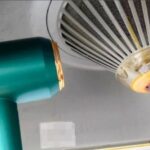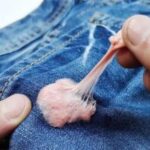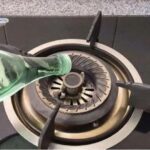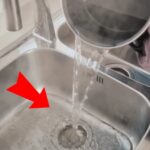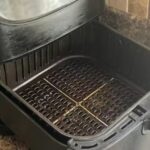Hot water can be effective in removing stubborn grease and grime. For this reason, many people pour hot water into their kitchen sinks to dissolve grease, unclog drains, eliminate odors, or pour hot water used for boiling or blanching vegetables into the sink after cooking. However, pouring hot water down the sink can also cause some potential problems.
The Dangers of Pouring Hot Water Down the Sink
– Accelerated Aging of Plumbing Pipes
Most kitchen drain pipes are made of plastic. While modern plastics can withstand high temperatures, subjecting them to constant hot water can accelerate their aging process.
Reduced pipe lifespan means you’ll incur additional costs for repairs and replacements sooner than expected.
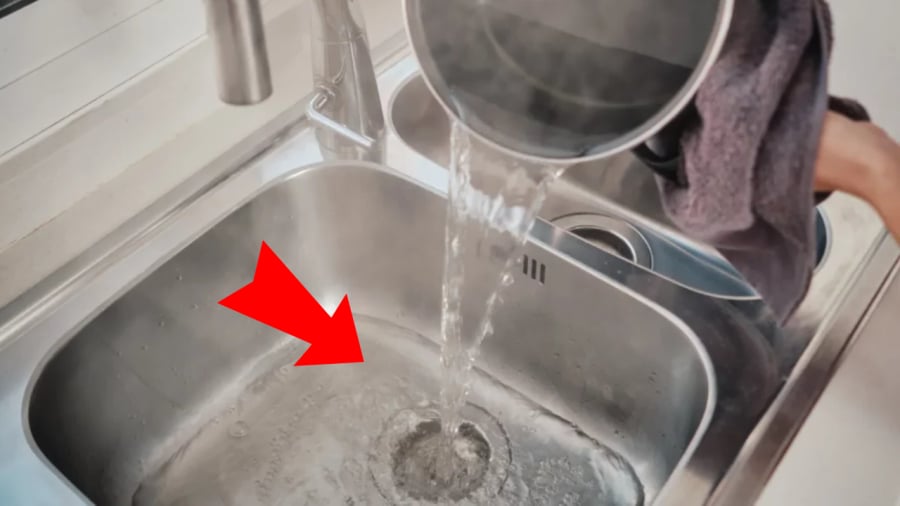
Pouring hot water down the sink can cause more problems than you think.
– Deformation and Cracking of Drain Pipes
The quality of drain pipes can vary. If your home has PVC plastic pipes, take note.
PVC pipes typically can’t handle temperatures above 60°C. However, boiling water or water used for blanching vegetables can reach temperatures of 90-100°C. Pouring such hot water down the drain can cause the pipes to deform due to excessive heat, leading to cracking and potential water leakage that can damage your kitchen cabinets.
Alternative Ways to Remove Grease from Drain Pipes
Instead of relying on hot water to remove grease from your drain pipes and ensure smooth water flow, consider the following tips:
Firstly, never pour cooking oil or grease directly down the drain. These substances may be liquid when hot, but they tend to solidify as they cool down. Combined with other debris, they can cause blockages and emit unpleasant odors from your sink.
To unclog drains, you can use dedicated drain unblocking products. These products contain dissolving enzymes that can emulsify grease, preventing it from forming large, solid clumps in your pipes.
These enzymes are capable of traveling through the entire length of the drain pipe, ensuring effective removal of grime. Additionally, these products usually have antibacterial properties.
You can use these drain unblocking agents in your kitchen, bathroom, and toilet drains. Just remember to carefully read the instructions on the product packaging before use and opt for products with clear origin and ingredient information.
The Ultimate Guide to Cleaning Your Greasy Range Hood: A Blow-Dryer Will Make It Look Brand New
“A hairdryer is all you need to effectively clean your range hood. Yes, it’s that simple! No need for expensive chemicals or tedious scrubbing. With just a hairdryer, you can have a spotless range hood in no time. It’s an easy, cost-effective solution that will leave your kitchen smelling fresh and looking sparkling clean.”
























